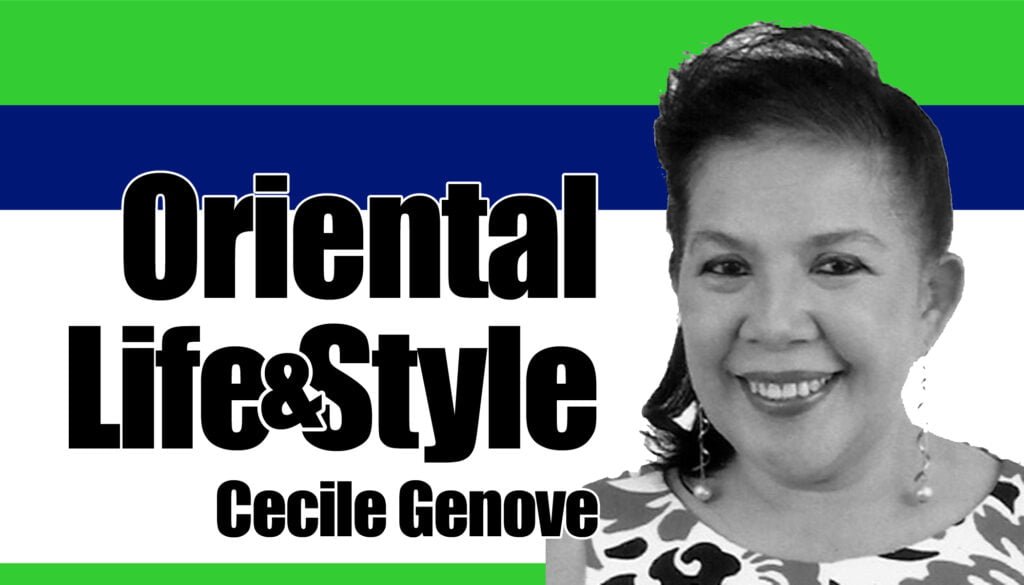
We have just celebrated International Women’s Day last Friday, March 8 while March has been earmarked as Women’s Month. Thus, it is just fitting that we feature not just an advocate of gender equality, but an environmentalist as well.
It is not very often that one meets somebody who can passionately and excitedly discuss a subject matter close to one’s heart and that one can truly believe in, or, live by. For one, while some profess that they have an advocacy, making things happen is another thing. While others likewise advocate for reforms, doing the legwork and making follow-ups on legislators and powers-that-be can be very taxing if you do not have patience.
Thus, hobnobbing with the very spirited environmentalist and staunch gender equality advocate Cecilia Hofmann was both a treat and an eye-opener as she shared many interesting insights about her work, her advocacies, her family and herself, and about life in general.
As she clarifies, “Gender equality is a big goal of the United Nations, but it doesn’t mean that women and men should be equal, but we question the standard. For example, boxing is a man’s sport, but women do not have to engage in boxing to be equal with men. Boxing, in fact, should not even be tackled by men. I think it is very primitive and violent. It is the only sport whose intention is to hurt another.”
Moreover, Hofmann explains, there is both positive and negative masculinity. “Women and men shall seek to eliminate the traditional notions and patterns that perpetuate the social, cultural, and political positioning of women and men, and that historically have tended to disadvantage women,” she adds.
In society today, it is evident that there are manifestations of gender bias, says Hofmann. “Women are often looked upon as subordinates, including in the decision-making process. Women also have multiple burdens and we have heard of many incidences of sexual exploitation and violence against women,” explained Hofmann.
Because of gender socialization, Hofmann adds that our positions in society undergo a process of inculcating among children and young people the accepted male/female norm. “In Samoa, for example, people there can choose who they want to become. It is accepted because it is part of their culture,” Hofmann shares.
Today, we see the emergence of many women who have become leaders, legislators, heads of state, opinion makers, and news makers. In a way, according to Hofmann, they have risen above the stereotypes of what women and men can do and what they cannot do. The very popular web site, Google, is headed by a woman who recently gave birth to twins, Hofmann says.
She emphasizes and cautions the public from patronizing products supposedly directed at men, but which use women and their images to promote them. She mentioned an ad of a certain car oil brand where a woman was the central figure. “But what is the role of a woman in a car oil product? This is the same with beauty pageants. They are all about selling and making money at the expense of these women,” she laments.
Born in Manila, Hofmann currently has set up residence in Rizal Street, Balayagmanok, Valencia, Negros Oriental. She graduated at the University of the Philippines and at Skidmore College, New York with a degree of Bachelor of Arts in English Literature. She earned a teaching certificate at the Royal Society of Arts, London and a diploma of French Studies at the University of Paris. She co-founded Samahang Pilipino-Zurich (Filipino Migrant Women Organization) in 1985 and became executive director of Gender Watch Against Violence and Exploitation (GWAVE) in 2003-2009, but continues to be a member of the board to this day. She is a member of Friends of the Environment in Negros Oriental (FENOr) since 2010 and has published papers either as author or co-author and has conducted workshops on gender and development, reproductive rights and sexuality, and gender perspectives in Philippine laws, among other topics.
A grandmother three times over courtesy of her two daughters living in Switzerland, Hofmann comes from a large family of nine siblings. She confessed that she actually “planned” when she would get pregnant and give birth, with her eldest daughter being born in July (spring time) and her second daughter born in May – “all during sunny weather as it can get pretty depressing in the winter and you are cooped up inside your house.”
In conclusion, Hofmann warns that “ignorance is dangerous” and we just have to speak up for our rights and learn to verbalize. “We need to express our feelings, but it doesn’t mean that we are at war with somebody or anybody,” retorts Hofmann. | NWI




